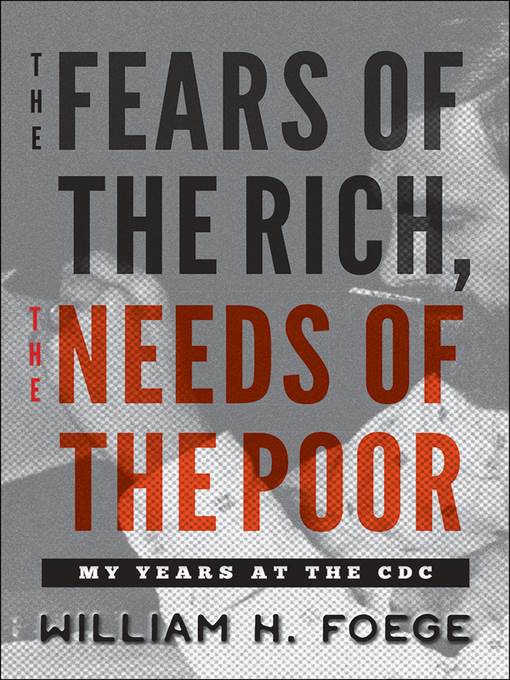
The Fears of the Rich, the Needs of the Poor
My Years at the CDC
سالهای زندگی من در مرکز کنترل بیماریها
کتاب های مرتبط
- اطلاعات
- نقد و بررسی
- دیدگاه کاربران
نقد و بررسی

April 1, 2018
Wisdom gleaned throughout the career of the former director of the Centers for Disease Control and Prevention.Foege (Emeritus, International Health/Emory Univ.; House on Fire: The Fight to Eradicate Smallpox, 2011), who was awarded the Presidential Medal of Freedom in 2012, has personally witnessed the agency's evolution alongside many changes in global health. Beginning with a harrowing bioterrorism threat depicted in the opening story, which inspired a CDC defense program, readers will get a sense of the enormity of the agency's responsibility to safeguard global health. As a collective, these condensed experiences represent many key moments in Foege's tenure with the agency and spotlight some of the CDC's significant accomplishments and enduring challenges, including the blight of Legionnaire's disease and the overwhelming devastation of AIDS. These issues form the springboard for more of the author's intensive discussions of the precariousness of vaccine therapy and immunization programs and the ultimate challenge in retaining established immunization levels when countered, in part, by parents who "no longer compare the risks of vaccine to the risk of the disease." Foege offers a brief but thoughtful history of the CDC, its protocols, and its complicated history of political entanglements, which, to the author, have a tendency to prove more counterproductive than supportive. Alternately, he notes the presence of "plenty of humor" within agency meetings, daily interactions, and other events. Foege details how he ascended to the director post following 15 years of CDC association, participating in disease outbreak investigations and completing one of his most prestigious achievements: the development of a strategic plan to eradicate the smallpox virus. He also passes on the wisdom of his CDC years in declaring that the key to effective public health advocacy lies in an "appropriate response" from official agencies and offers advice on contemporary hot-button issues--e.g., gun safety, tobacco, and evolution--that have been marred by public irrationality.A straightforward, informative chronicle of the CDC and one of its most dedicated, prominent officials.
COPYRIGHT(2018) Kirkus Reviews, ALL RIGHTS RESERVED.

May 1, 2018
Foege (emeritus, international health, Emory Univ.), formerly director of the Centers for Disease Control (CDC), provides a retrospective window into American public health, combining history and memoir while tracing national and international developments in U.S. policy. The personal narrative chronicles the author's service as a U.S. public health officer, his aid efforts in Africa, and his years at the CDC. Full of candid commentary on the approaches to public health policy that both work and don't work, the text explains the political forces behind these decisions. Foege's delightful, honest, and sometimes quite humorous and moving writing covers a range of topics, from injury prevention efforts at the CDC to toxic shock syndrome and AIDS. These discussions can help nonspecialist readers understand how epidemiological studies work and offer insight into why it seems to many that important decisions are delayed. VERDICT Readers interested in the history of American public health efforts will be informed and by turns enlightened and entertained by this engaging work.--Aaron Klink, Duke Univ., Durham, NC
Copyright 2018 Library Journal, LLC Used with permission.

























دیدگاه کاربران